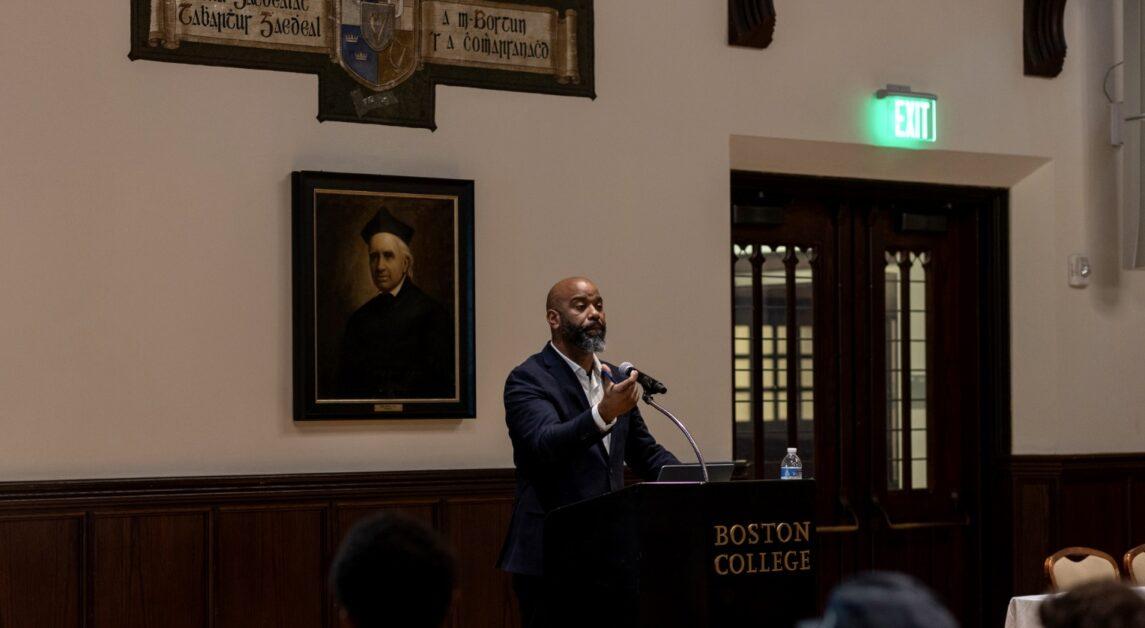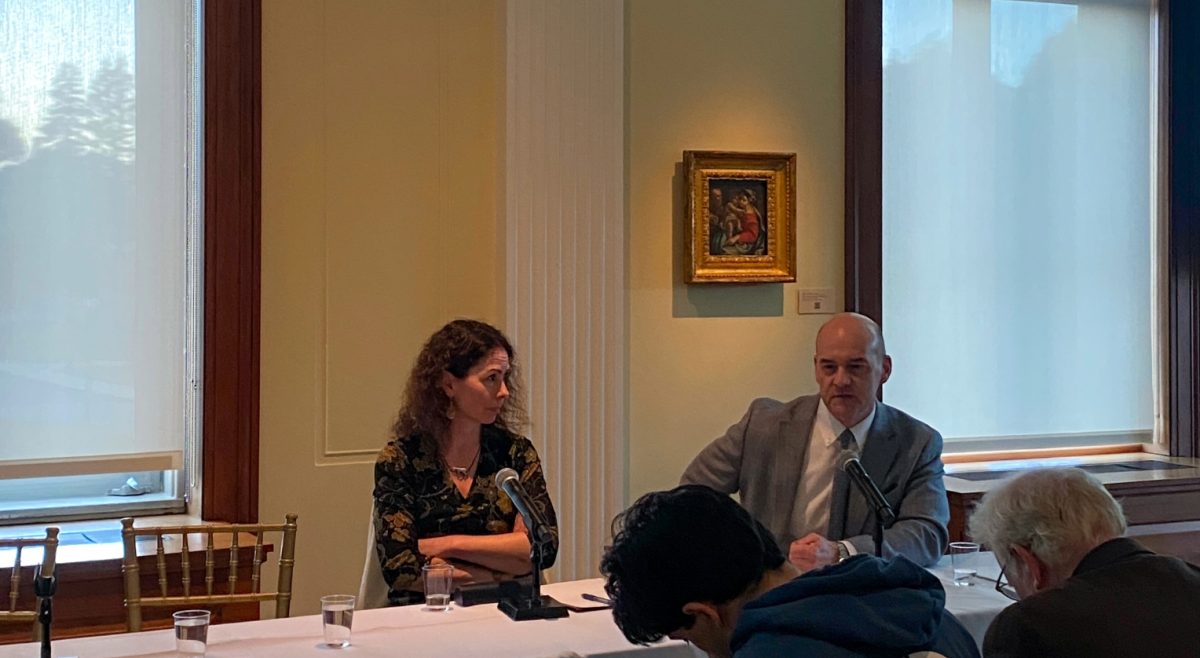Over the summer, Boston College entered into arbitration over the use of the domain name bostoncollege.us. According to the decision issued by the National Arbitration Forum (NAF)—a body that resolves disputes over the use of top-level domains—BC claimed that the owner of the website violated BC’s trademark rights and used the name “Boston College” in bad faith. That website, which has since been taken down, was set up to appear like a generic school in the Boston area, and it purported to offer programs such as associate’s, bachelor’s, and master’s degrees, as well as Ph.D.s. On July 3, the panel ruled in favor of BC and transferred ownership of the domain name to the University.
Although the complaint to NAF was only submitted on June 9, the General Counsel’s office was first notified of the website’s existence earlier in the year by Information Technology Services (ITS), according to Nora Field, deputy general counsel of BC. Before proceeding to arbitration, she said that BC’s external trademark counsel tried to contact the registered owner of the website, listed as a Mark Zuckerberg of Massachussetts, but that the phone number did not function.
The University then turned to the NAF to resolve the dispute. In its June 9 filing to the NAF, BC asserted that the “bostoncollege.us” domain name was “confusingly similar to [BC’s] BOSTON COLLEGE mark,” that Zuckerberg had no “rights or legitimate interests in the domain name,” and that he “registered and used the domain name in bad faith.”
“It looked like a website that was set up to defraud people because it was pretending to be a real school,” Field said. “It had a phone number. It was pretending to offer online education.”
According to the NAF decision, Zuckerberg did not respond for the proceeding. The panel, composed of a single arbitrator, thus decided the proceeding “on the basis of [BC’s] undisputed representations.”
The panel found in BC’s favor in all three accounts, first establishing that the “BOSTON COLLEGE” mark on “bostoncollege.us” was identical with that of BC’s. The panel also found that Zuckerberg had no legitimate interest in the domain name, as shown by the fact that he owned no trademarks similar to the website name, is not known by that name, and is not making a legitimate offering of goods and services. Lastly, the panel established that Zuckerberg was using the name in bad faith, by creating “the impression of endorsement by, or affiliation with, [BC],” and by attempting to collect personal information and payment without providing services.
Now, the bostoncollege.us redirects to the University’s website, bc.edu.
Field said that this was not the first instance of BC having a problem with its name on the Internet. It was the first time, however, that BC had to register a formal complaint for arbitration. She cited a recent example of a man in Oregon who registered the site “bostoncollege.education” in an attempt to “cyber-squat,” but that he desisted when the General Counsel’s office informed him that it was illegal to do so.
She attributed part of the difficulty that BC encounters to the nature of the University’s name.
“We have a very challenging name to police because trademarks in general are supposed to be unique and novel and not descriptive or generic,” Field said. “We have a name that is a geographic place and a generic name, ‘college,’ and it is very difficult to prevent people—particularly people in other countries—from using our name.”
In the past, the University only learned of sites like these when ITS or alumni came across them, according to Field. Now, the University has signed up through The Trademark Clearinghouse to be notified any time that someone tries to register a website with a trademark owned by BC.












